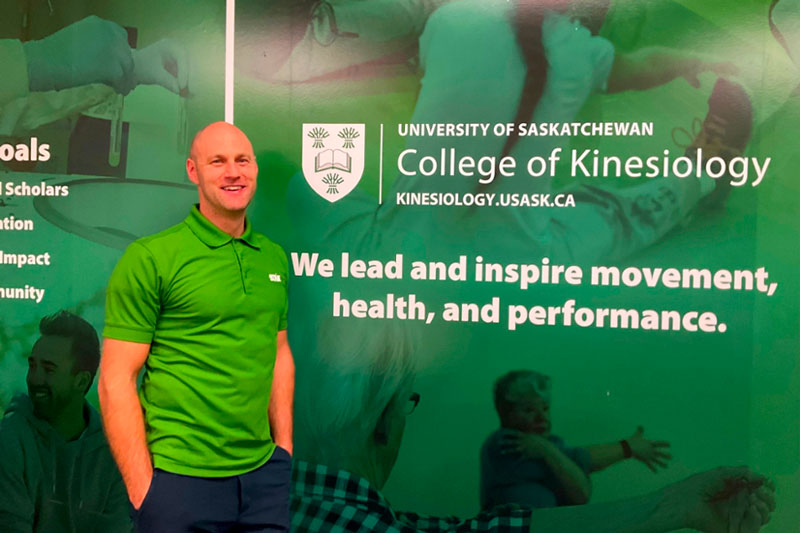
Alumni Feature: Blair Healey(BScKIN’06, MSc’10)
Get to know alumnus, Blair Healey(BScKIN’06, MSc’10) and how his Bachelor’s and Master’s degree in kinesiology have helped him thrive in his career.
By KINESIOLOGY COMMUNICATIONSBlair is currently the Area Manager CBI Health – Saskatoon, Rehabilitation Services and recently joined our KIN 990 class to discuss the important role is Master’s degree plays in his day-to-day work.
How has your Master’s degree in Kinesiology contributed to your professional success?
The MSc degree has contributed to my professional success by providing experience with short and long term project management, effective and engaging public speaking, and most importantly, believing in myself.
Can you share some specific skills, knowledge, or experiences you gained during your Master’s program that have been particularly useful in your career?
The research based program instilled confidence in my abilities of having a vision, seeing it through, and in person presentation of the successes and challenges. It is intimidating to present your work as a MSc student to an audience of distinguished as PhD professionals who will question your work, but guess what… this is everyday life in the work world. Every time you step into a meeting you have the opportunity to be a leader, to be vulnerable, to engage your audience, and earn the next opportunity. Embrace it.
How did your Master’s in Kinesiology prepare you for the challenges you’ve faced in your profession?
Evaluating quantitative and qualitative literature and applying gained knowledge to projects has translated to making informed and evidence based decisions and therefore confidence that the best decision was made with the information that was available.
Can you provide examples of how your Master’s degree in Kinesiology has helped you make a difference in your field?
Having the confidence to present a vision and implement a project has led to seeing that I can be part of making positive changes. I joined the Kinesiology Association of Saskatchewan board of directors and have lead out fee negotiations with major funders, bridged organizational partnerships, and I feel have helped move the stakes in raising awareness of the kinesiology profession within our academic community.
Looking back, what aspects of your Master’s program do you feel were most valuable for your professional development?
Presentation skills, engaging conversations, and making informed decisions.
How has the field of Kinesiology evolved since you completed your Master’s degree, and how has your degree helped you adapt to these changes?
There are less Kinesiologists or Kin grads looking to work in the field. So many students are going through the kin college with the intention of using Kin as a platform to transition into other professional colleges resulting in less having the interested in obtaining a certification like CSEP – CEP which leads additional work opportunities. The MSc program allowed me to stay connected with the academic community in hopes of strengthening the link between the academic programs and the applied Kinesiology career opportunities.
What advice would you give to current students pursuing a Master’s in Kinesiology or those considering this career option to maximize their success in the field?
Take every opportunity that you can to present and develop your ability to engage the audience. Be courageous. Accept feedback as a gift. Do not be afraid to fail or get rejected, it is the best time to learn and grow.
Article originally published at https://kinesiology.usask.ca


